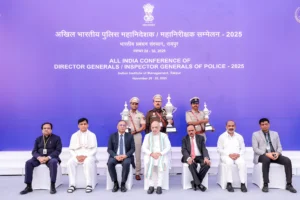
At a ceremony held at his residence, Minority Affairs Minister Kiren Rijiju unveiled a new book titled Waqf Bill 2024: Respect to Islam and Gift for Muslims, authored by members of the Muslim Rashtriya Manch. Rijiju hailed the book as a significant step in fostering minority welfare and called it a guide for reforming the Waqf system to better serve the Muslim community.
Authors and Contributions
The book, written by experts including Dr. Shahid Akhtar, Dr. Shalini Ali, lawyer Shiraz Qureshi, and social worker Shahid Sayeed, provides a detailed analysis of the Waqf system, advocating for reforms to promote transparency and social impact.
Also Read: Supreme Court To Address Alarming Rise In Delhi Air Pollution On Monday
Dr. Akhtar highlights the need for administrative changes, while Dr. Ali emphasizes women’s representation in Waqf boards. Qureshi addresses legal accountability, and Sayeed connects historical principles to Waqf’s potential for social welfare.
Call for Reforms: The UMMEED Act
Through the proposed “UMMEED Act” (United Waqf Act for Management, Empowerment, Efficiency, Development), the book suggests digital record-keeping, independent audits, and efficient property use, aiming to uplift underprivileged communities by ensuring Waqf assets benefit education, healthcare, and social initiatives.
Rijiju praised the Muslim Rashtriya Manch’s efforts to engage the community, advocating for a Waqf system that aligns with justice and inclusive growth. He acknowledged the government’s commitment to reform and emphasized that Waqf properties, seen as valuable national assets, should foster unity and support the needs of society’s most vulnerable.
To read more such news, download Bharat Express news apps


















